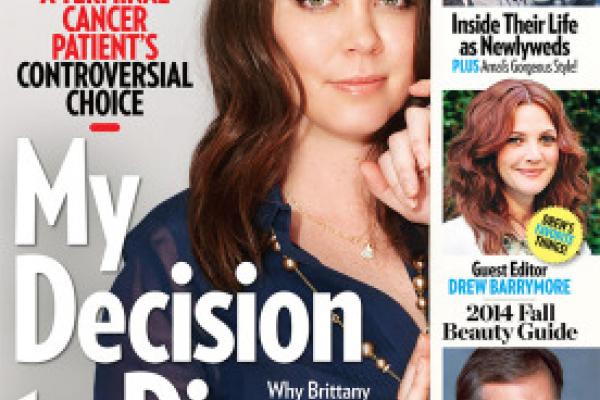Brittany Maynard, the 29-year-old suffering with an aggressive brain tumor, died Nov. 1— as she said she would.
Sean Crowley, spokesman for the non-profit advocacy organization Compassion & Choices, confirmed Maynard’s death Nov. 2.
“She died peacefully on Nov. 1 in her Portland home, surrounded by family and friends,” according to a statement from Compassion & Choices, which first publicized Maynard’s controversial plan to take control of her death.
The statement said Maynard suffered “increasingly frequent and longer seizures, severe head and neck pain, and stroke-like symptoms.” She chose to take the “aid-in-dying medication she received months ago.”
She captivated millions via social media by announcing her plan to end her life around Nov. 1 by taking a lethal prescription provided to her by a doctor under Oregon’s death-with-dignity law.
Read the Full Article

